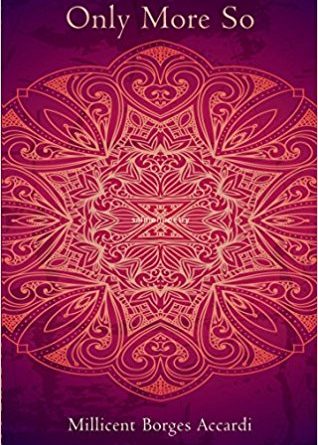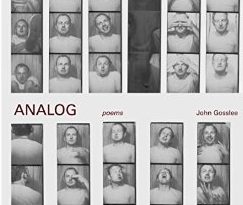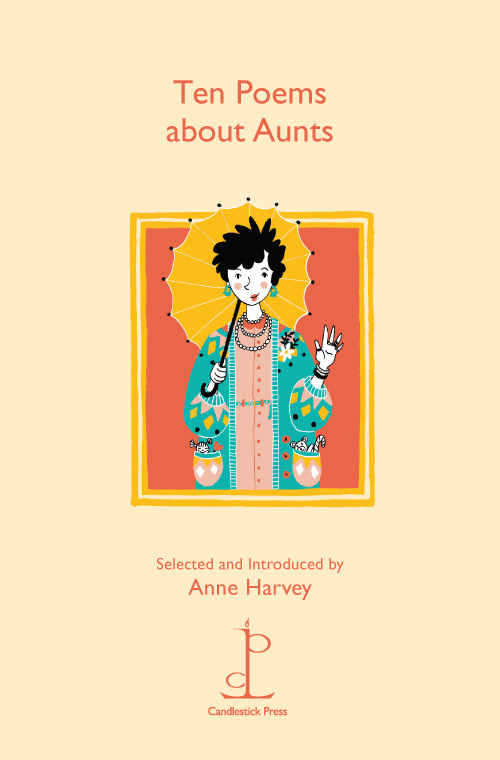Only More So by Millicent Borges Accardi
– Reviewed by Deirdre Hines –
The opening poem of Millicent Borges Accardi’s Only More So, ‘On a Theme by William Stafford’, signposts the journey taken by the poems in this collection. Famous for his questing imagination and for his pacifism, William Stafford’s poems take place on the frontiers of his childhood and the Native American wilderness. Accardi surprises the expectation garnered from the title in her first line, when she states that “If I could be like Wallace Stevens”, she would not be living from a suitcase; she would “really move/in”. The second stanza refers to Stevens’ iconic ‘The Emperor of Ice Cream’: in her room, Accardi would eat “both cone and cream”, both the inner and the outer part of the treat. Accardi has travelled extensively, living in Prague, the Czech Republic and Paris, and her formative years taught her that “the only way out is in”. The poems in this collection move in simple harmonic motion around the abstractions of inner and outer. Each poem follows on from the subject matter, tone, phrase, or theme of the previous one.
Poetry of witness does not necessarily need to contain direct experience of the events in question. When Accardi writes poems about rape, she approaches it as a weapon of war, through a poem about marriage called ‘Coupling’. Its line “ her heart compact as plywood” is echoed in the “devil’s four poster bed” in “Ciscenje Prostora” (Ethnic Cleansing). Stevens’ ‘Anecdote of the Jar’ pales into insignificance when we read of the woman hiding behind “a clay pot”, with no language that can save her as she “whispers out between no and help”. The titular poem also focusses on rape, this time set in the Moravian Holocaust rather than the Serbian war. Lines in this poem will enter your subconscious and change it irrevocably. Homes are not safe places in war, and when the woman of the poem lets in the “fat-coated/ soldiers” , they sit by her “yellow fire, to swallow up her walls”. Her husband thinks “visitors are cold as bad luck”, then turns to gravel. Accardi often uses simile as a poetic device, alongside plain spoken language, like Stafford’s, which shifts complacencies. The opening line “You see it was very much like this” is stunningly echoed in the last poem’s poignant and everlasting aftermath of such a violation, the line “It was like this, only more so”.
Stevens believed that evil was a necessary aspect of life, and that it was inspirational. The poem that follows, ‘In Prague’, is littered with the bones of an unearthed open grave, ending with the incantatory:
Take me where memory makes my legs move,
Take me where moss holds language,Take me where we have a name for the things we do.
This leads into ‘How to Shake off the Policiade Seguranca Publica Circa 1970’, an indictment of the rule of Portugal’s Prime Minister Salazar and his secret police, a way to evade and escape fear in order to regroup.
That regrouping takes place in poems that see and feel their way back into family histories, such as ‘Summer Vacations’, memorialising the poet Lynda Hull, whose lyrical evoacations of the underbelly of American life are mirrored in the poem ‘Breaking with the Old’. I found the anaphoric use of ‘aka’ lessened the strength of its accompanying phrases, but this poem may need to be heard rather than read.
The stories that hover beneath identity are a recurrent motif: the best of these takes place at the end of ‘Start Here’, with lines that echo ‘Only More So’. This poem could easily have ended the collection, but Accardi journeys back into the mythic past with a retelling of the Apollo and Daphne legend in ‘Like Nameless Skyscrapers’. After its final line, “Everything she wants to hear”, we start to read poems that that tell of illness and death. These are more difficult to listen to, as illness transcends all borders, and can strike anyone at any time. For all that, “Under Different Conditions” is a masterful poem. It works because of its understatement:
They say it changes who
you are, how family treats
you, what strangers say. Words
to avoid, books not to read, …
The humour in ‘There was a Part’ lies in Accardi’s imagined evocations of her absent sister’s life. The multiplicity of identities she imagines for her are echoed in the rich tapestries of her Portuguese heritage, which inform ‘The Last Borges’ and ‘Ordinary’. I preferred ‘Ordinary’, for its celebration of an unforgettable woman. The last poem, ‘Faith’, blends the sequestered interior world of the Catholic nun with the faith of the outside world. Its metaphoric possibilities are lessened, for me, by the assertion in her closing lines: “it requires this cardinal leap of faith/ for them to still/ believe/ they/ are/ female”. The female spirit of endurance survives the most harrowing of journeys in these poems.
[Editor’s note: we are no longer accepting new single-author collections for review at Sabotage, but are running this piece because it was requested and agreed to before this decision was made.]





